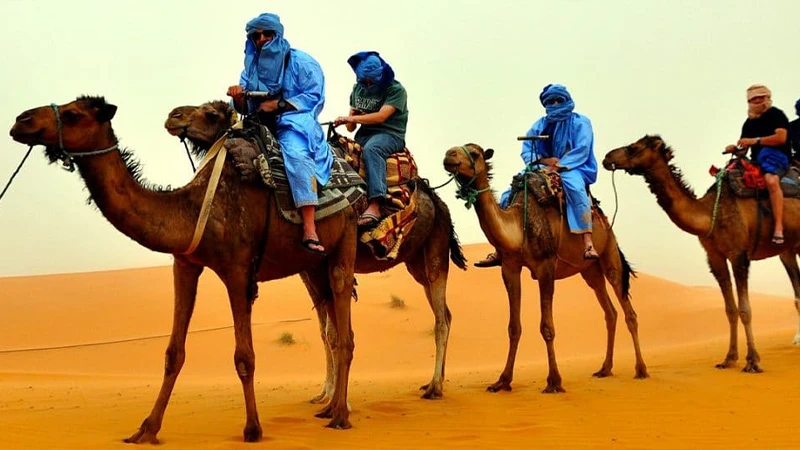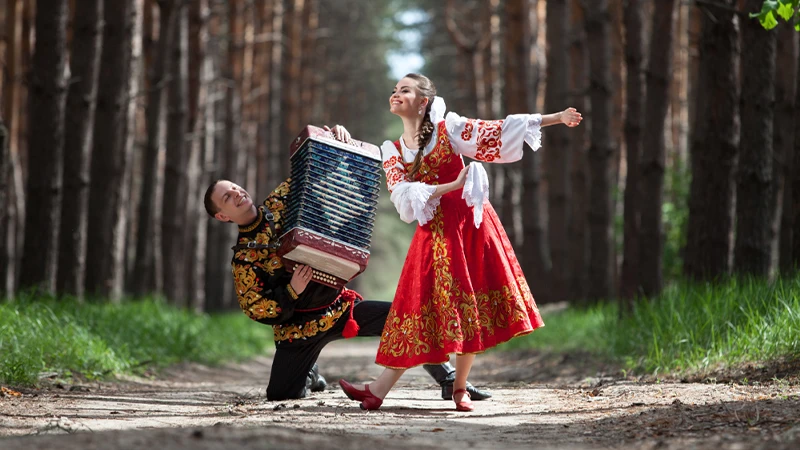The Arab world, which stretches across the Middle East and North Africa (MENA) region, is home to a rich tapestry of cultures, languages, and traditions that date back thousands of years. From the bustling markets of Cairo to the ancient ruins of Petra, the Arab world offers a fascinating blend of ancient customs, vibrant festivals, and diverse indigenous practices. Whether you’re visiting an Arab country for the first time or you are an experienced traveler, understanding the local customs and traditions can greatly enhance your experience and ensure you approach your interactions with respect and appreciation.
In this article, we will explore the core customs of Arab countries, touching on aspects of culture, social norms, festivals, and indigenous traditions that define the region.
1. Respecting Social Etiquette and Family Values
In Arab cultures, family is the cornerstone of society. The family structure is typically hierarchical, with respect for elders and the nurturing of strong bonds between generations being central to daily life. Hospitality and politeness are also highly valued, and visitors will often be welcomed with warmth and generosity.
A. Hospitality
Hospitality is one of the most important cultural values in Arab countries. When you are invited into an Arab home, it is customary to bring a small gift as a token of appreciation. Offering food and drink to guests is a sign of respect and generosity. In many cases, coffee or tea is served as a welcoming gesture, and it’s considered polite to accept the offer.
- Coffee and Dates: In many Arab countries, serving Arabic coffee (often flavored with cardamom) along with dates is a traditional way to greet guests. Be sure to take a small sip if offered; it’s a gesture of respect.
- Meal Etiquette: Meals are often shared family-style, and eating together is a sign of unity. In some cultures, it’s common to eat with your hands, particularly when eating dishes like couscous or rice. Always eat with your right hand, as the left hand is traditionally considered less clean.
B. Dress Modestly
Modesty in dress is a cultural norm in many Arab countries, particularly in the Gulf states and more conservative regions. It is important for both men and women to dress conservatively when visiting religious sites or public places. For women, covering the shoulders and knees is often expected, and many Arab countries, especially in the Middle East, have laws requiring women to wear a headscarf in public, such as in Saudi Arabia and Iran.
C. Respecting Elders
Respect for elders is a fundamental aspect of Arab family life. Young people are expected to show deference to older individuals, particularly in social settings. Greeting elders first, standing when they enter a room, and using formal titles (such as “Sir” or “Ma’am”) are common ways to show respect.
2. The Importance of Religion in Arab Culture
Islam is the dominant religion in the Arab world, shaping not only spiritual beliefs but also daily customs, festivals, and social practices. While there are also Christian and other religious communities in the Arab world, Islam’s influence is pervasive, particularly in the Gulf states and countries like Egypt, Jordan, and Morocco.
A. Ramadan and Eid al-Fitr
Ramadan is the holy month of fasting observed by Muslims. During Ramadan, Muslims refrain from eating, drinking, smoking, and engaging in certain physical pleasures from dawn until sunset. This period is seen as a time for spiritual reflection, prayer, and charity. The end of Ramadan is marked by the festival of Eid al-Fitr, a joyous celebration of the end of fasting.
- Traditions during Ramadan: During Ramadan, families gather for the pre-dawn meal called suhoor, and the evening meal known as iftar, which breaks the fast. Iftar often begins with the eating of dates, followed by a large meal that includes traditional dishes like harira (a rich soup), sambusas (fried dumplings), and qatayef (sweet pastries).
- Eid Celebrations: Eid al-Fitr is marked by feasting, visiting family, giving gifts, and charity. The custom of giving Eid al-Fitr alms (known as zakat al-fitr) is also a key aspect of the festival, ensuring that the poor can also partake in the celebrations.
B. Hajj and Pilgrimage
Hajj is one of the Five Pillars of Islam and is a pilgrimage to the holy city of Mecca in Saudi Arabia. Every year, millions of Muslims travel to Mecca to perform the sacred rituals of Hajj. The act of pilgrimage is deeply significant for Muslims and is seen as a way to purify the soul and gain spiritual merit.
3. Festivals and Celebrations in the Arab World
Arab countries host numerous cultural and religious festivals throughout the year. These celebrations provide an opportunity to experience the rich traditions of each country, from food and music to traditional dancing and dress.
A. Eid al-Adha (Festival of Sacrifice)
Eid al-Adha, another major Islamic festival, commemorates the willingness of the Prophet Ibrahim (Abraham) to sacrifice his son as an act of obedience to God. The festival involves the symbolic sacrifice of an animal (often a goat, sheep, or cow), with a portion of the meat given to the poor. This festival is a time for family reunions, feasting, and giving back to the community.
B. Mawlid al-Nabi (Prophet Muhammad’s Birthday)
Mawlid al-Nabi is the celebration of the birth of the Prophet Muhammad. This holiday is marked by religious observances, including prayers, processions, and public gatherings. In some countries, it is a festive occasion, with special foods, sweets, and cultural events.
C. National and Cultural Festivals
Beyond religious holidays, Arab countries celebrate national holidays and cultural festivals that reflect their heritage. For example:
- The Cairo International Film Festival (Egypt): A major cultural event in the Arab world, celebrating cinema from the region and beyond.
- The Dubai Shopping Festival (UAE): A huge shopping and entertainment event, featuring discounts, concerts, and fireworks.
- Marrakech International Film Festival (Morocco): A prestigious event that attracts filmmakers, actors, and celebrities from all over the world.
4. Indigenous and Regional Traditions
Arab countries have a rich tapestry of indigenous traditions that vary depending on region and tribal customs. Many of these traditions have been passed down for generations and reflect the unique history and environment of each country.
A. Bedouin Traditions
The Bedouins, traditionally nomadic Arab tribes, have a rich cultural heritage that continues to influence many parts of the Arabian Peninsula. Bedouin hospitality, music, dance, and poetry are still practiced today. The Bedouins are known for their sense of honor, generosity, and deep connection to the desert. Traditional music instruments like the oud (a stringed instrument) and darbuka (a type of drum) are used in Bedouin celebrations.
B. Falconry
Falconry is a centuries-old tradition in many Arab countries, especially in the Gulf states. It is not only a sport but also a symbol of status and heritage. Falcons are trained for hunting, and there are competitions where the skills of falconers are showcased. In countries like the UAE, falconry is considered a cultural treasure and is even recognized by UNESCO.
C. Camel Racing
Camel racing is a popular traditional sport in the Arabian Peninsula. Camels are bred and trained for racing, and competitions are held throughout the year, particularly in the UAE, Qatar, and Saudi Arabia. This ancient sport is celebrated as a symbol of the region’s heritage.
5. Traditional Arts and Crafts
The Arab world has a long tradition of craftsmanship and artistry that has been passed down through generations. The art of calligraphy is particularly important in Islamic culture, where Arabic script is revered as a form of artistic expression. Other traditional crafts include:
- Carpet weaving: Particularly in countries like Morocco, Iran, and Turkey, carpet weaving has been a revered craft for centuries.
- Pottery and ceramics: Arab countries have a long history of producing intricate pottery and ceramics, often adorned with beautiful geometric patterns and vibrant colors.
- Silver and gold jewelry: Traditional jewelry, often handmade and passed down through generations, plays an important role in Arab culture. Many pieces are designed with symbolic motifs and are worn during festivals and special occasions.
Conclusion
The Arab world is a region of profound cultural depth, rich history, and diverse traditions. Understanding the customs and practices of the Arab countries will not only enhance your travel experience but will also help you engage with the people and cultures in a respectful and meaningful way. Whether it’s observing the sacred rituals of Ramadan, celebrating vibrant festivals, or experiencing the timeless traditions of the Bedouins, the Arab world offers a unique and unforgettable cultural journey.








